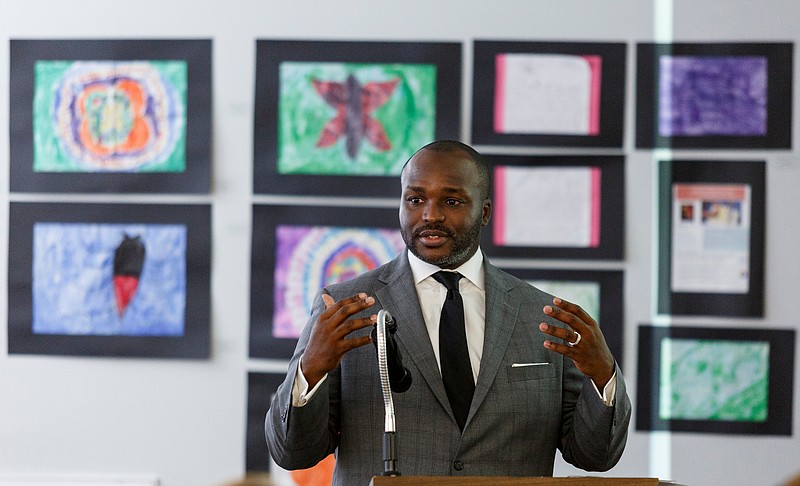Corporal punishment in Tennessee Code
Any teacher or school principal may use corporal punishment in a reasonable manner against any pupil for good cause in order to maintain discipline and order within the public schools.Title 49 Education; Chapter 6 Elementary and Secondary Education; Part 41 School Discipline Act § 49-6-4103 (2017)
Hamilton County schools are re-evaluating their disciplinary approach this year.
"I'm not a believer in corporal punishment," schools Superintendent Bryan Johnson said during the Hamilton County PTA Council's "State of Our Schools" meeting last week. "But, I understand the system has [been doing] that."
Johnson said a complete halt to physical punishment, such as paddling, has not yet been implemented, but he expects the number of instances to drop now that administrators know it's not something he and his team support.
"We are not in a place at the moment to just completely stop the practice, but we are looking at doing that," he said.
Last school year, the district had 270 instances of corporal punishment recorded, with one school - Tyner Middle Academy - accounting for 69 percent of those with 186 instances. A regular school year in Tennessee is 180 days, according to the state department of education.
Director of Student Services Marsha Drake said she thought the number was high, but more research would have to be done to determine if it was 186 different students or if all or a large portion of students participated in the same misbehavior.
Drake also pointed out that many parents at Tyner Middle request administrators to discipline their children in that form in order to avoid a suspension, which could cause the parent to have to take time out of work to stay home with the child.
The topic came up at the PTA meeting after an audience member pointed out that teachers and administrators might be concerned with the rise in suspensions since "the discipline level has been changed, adjusted a little bit."
Johnson said the effort to phase out corporal punishment is part of his initiative to better address the social and emotional needs of students.
"We have more and more students that have social and emotional needs, and we have to make sure we address those before we can even address the instruction," he said.
As an example, Johnson said, "if a middle school kid is using the restroom on his or herself, to paddle that kid is probably not the right approach."
He said if a child at that age has that problem, it's probably an indicator for something more severe, one of them being sexual abuse.
"There's always a reason a student is misbehaving," he said. "Kids aren't just bad. There's usually something behind that."
Drake said they are in the process of developing a system-wide behavior and classroom management plan "so that we can take a more hands-on approach, develop more of a relationship, getting to know our kids more. So that they are engaged and in a place where they can learn and others around them are learning."
Drake said she expects corporal punishment to be phased out of Hamilton County schools within the next year or so.
Karen Glenn, director for Students Taking A Right Stand, said there are several initiatives to better prepare teachers and administrators on how to deal with problem behavior and create a positive relationship with students. Several schools have gone through the training now, which started about a year and a half ago.
"Student behavior is all about creating a holistic school climate where unacceptable behavior doesn't thrive," she said.
School leaders are being trained to highlight positive behavior rather than negative behavior, Glenn said.
"Sometimes students may misbehave because they want to get attention, so we're giving attention to the positive and not so much the negative, in hopes that some of that negative behavior is going to fizzle out," she said.
Some of the professional development for school personnel includes restorative practices and a program called Love and Logic. Both practices are empathy-based training, in which students are taught how their actions affect others and are given a chance to repair the harm.
"When there's just punishment alone, that's not going to be an effective strategy to deter the behavior," Glenn said. "But we're looking at how to correct the behavior and how to not have those repeat offenses."
